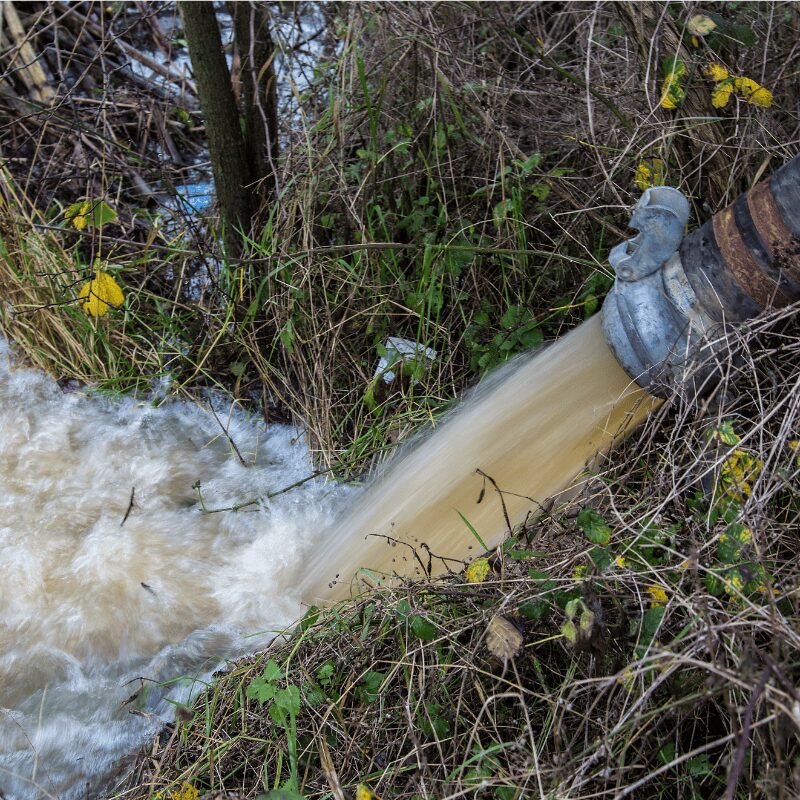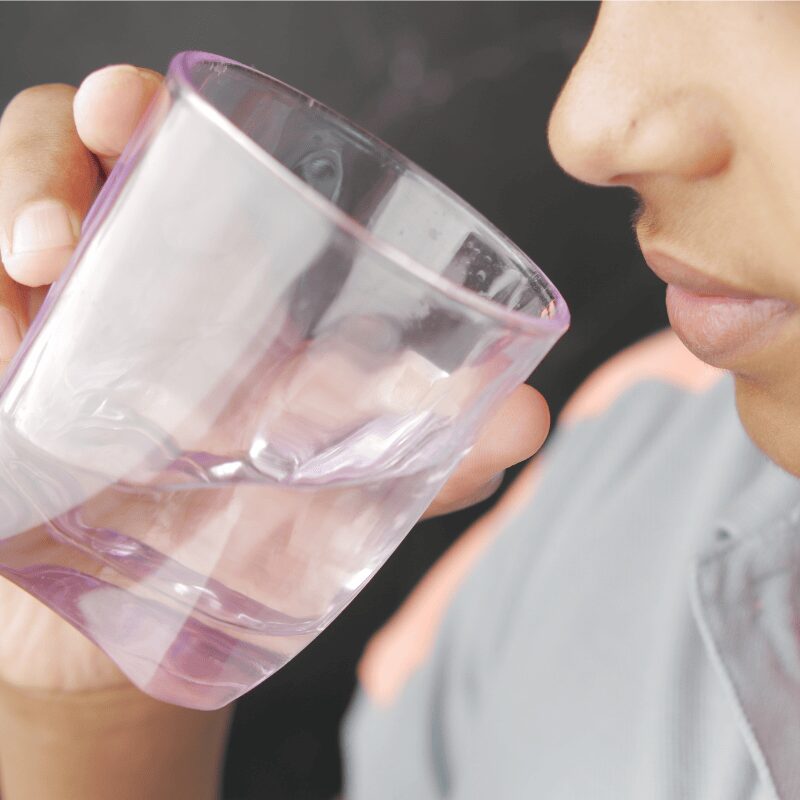Why Southern Texas Water Smells Funny

Water quality is a fundamental component of public health and the natural environment here in the Rio Grande Valley. In the southernmost reaches of the Lone Star State, our residents have encountered the puzzling question of why the water can sometimes emit an unpleasant odor. In fact, this is one of the most common complaints among Aqua Clear Water Solutions’ customers. If you’re battling this in your home, we’re here to tell you why and offer our top water filtration and treatment solutions.
The Quest for Clear Waters
The significance of water resources in the Rio Grande Valley cannot be overstated, as they serve as the lifeline for our region’s diverse ecosystem and inhabitants. Not only does this vital river valley support the agricultural sector, which is a major economic driver in Southern Texas, but it also sustains wildlife, vegetation, and the communities living along its banks. Most of the farmers, ranchers, and agricultural businesses we know rely heavily on this water for irrigating crops and livestock, making the Rio Grande’s health and sustainability crucial for the region’s food supply and economic prosperity.
Furthermore, the river plays a central role in cultural and recreational activities, cementing its importance in the day-to-day lives of Southern Texans. The interdependence between the people, the land, and the river highlights why maintaining the quality and availability of these water resources is essential for sustaining the vitality of the Rio Grande Valley.
Causes of Odor in Southern Texas Water
As anyone who has experienced it will tell you, strange smells in your tap water can be unsettling. There are many potential sources for this odor in the water supplies found in Texas, ranging from natural occurrences to human activities that affect the cleanliness and purity of water.
Natural Sources of Smells
One key natural source contributing to the unique odors in tap water in the Rio Grande Valley stems from the buildup of organic materials in the water bodies. This includes the accumulation of algae, bacteria, and plants that naturally occur in the environment. These biological materials, particularly during the warmer months or during algal blooms, can produce certain compounds like geosmin and 2-methylisoborneol (MIB), which impart a musty or earthy smell to the water. Though completely harmless and not indicative of water being unfit for consumption, these natural odors can be quite noticeable and off-putting to residents. High levels of certain minerals, like sulfur, naturally found in the region’s soil and water sources, can also contribute to the “rotten egg” smell that some users report. These natural factors combined create a challenging scenario for maintaining odor-free tap water in homes across Southern Texas.
Human-Induced Factors
Beyond the natural sources, human activities significantly contribute to the odorous water problem in Southern Texas. Industrial pollutants, agricultural runoff, and improper waste disposal can introduce a variety of chemicals into the water supply. These substances can react with the existing minerals in the water or decompose, producing unpleasant smells. For instance, chemicals from pesticides and fertilizers used in agriculture can leach into water bodies, leading to nutrient pollution. This, in turn, fuels the growth of certain algae species that produce odorous compounds. Furthermore, aging infrastructure such as old pipes can also be a culprit, releasing metallic or musty odors into the water as materials corrode or break down over time. It’s crucial to identify and mitigate these human-induced factors to ensure the health and safety of the water in the Rio Grande Valley.
Health Implications of Odorous Water
Olfactory discomfort is not the only issue when discussing smelly water coming from your tap. There are potential health risks associated with consuming or coming into contact with water affected by odor.
Potential Risks to Health
While the immediate concern often revolves around the unpleasant smell of contaminated water, the potential long-term health risks should not be underestimated. Water tainted with harmful chemicals or bacteria can lead to a range of gastrointestinal disorders, including nausea, vomiting, and diarrhea, especially in children and the elderly, who are more susceptible to waterborne illnesses.

Chronic exposure to contaminated water can also contribute to more serious conditions such as liver and kidney damage, disorders of the nervous system, and an increased risk of cancer. Pregnant women are particularly vulnerable, as certain contaminants can affect fetal development. Recognizing these risks underscores the importance of regular water testing and the adoption of effective water treatment solutions to ensure the safety and well-being of the community.
Precautions and Solutions
Aqua Clear specializes in implementing advanced home water filtration systems designed to address and eliminate the various causes of odors and impurities in your tap water. By leveraging cutting-edge technology, our filtration systems can effectively remove unwanted chemicals, bacteria, sediments, and other contaminants, ensuring that your water is not only safe to drink but also pleasant to the senses.
Whether the issue is natural, such as sulfurous compounds and algal blooms, or results from industrial and agricultural runoff, our solutions are tailored to meet the specific needs of your household. This means you can enjoy crystal clear, odor-free water every time you turn on the tap, contributing significantly to the health and well-being of your family. With Aqua Clear Water Solutions, you’re not just investing in a product; you’re securing peace of mind and a safer, healthier lifestyle.
Community Actions and Solutions
Resolving the issue of odorous water requires a multi-faceted approach involving individuals, communities, and governmental organizations.
Government Initiatives
Local and state governments must enforce strict regulations on industrial waste disposal, agricultural runoff, and residential chemical management to prevent contamination of water sources. There must also be a focus on infrastructure investment to ensure water treatment facilities are equipped to handle the contaminants they face.

Local Organizations and Efforts
Community groups and non-profit organizations play a pivotal role in advocating for better water quality and in organizing cleanup efforts. They also often contribute to environmental education which is vital for community awareness and participation in problem-solving.
Individual Steps to Improve Water Quality
Every Texan can help keep water sources clean. Simple steps, from reducing water usage to proper disposal of household chemicals, can have a positive impact. Fostering a culture of stewardship toward our water resources is imperative.
A Call for Clear Water
Taking action to combat the unnerving issue of odorous tap water not only elevates your home’s comfort but also fortifies your family’s health against potential hazards lurking in unfiltered water. By choosing a Kinetico water filtration and softener system from Aqua Clear Water Solutions, you’re not just addressing the superficial problem of unpleasant smells; you’re investing in a future where clean, safe, and odor-free water is a guaranteed standard in your household.
Don’t let stinky water undermine your home’s sanctuary. Contact Aqua Clear Water Solutions today and take a decisive step towards a healthier, happier home environment where every sip of water is a refreshing delight. Your family deserves the best—ensure their well-being with a Kinetico system, the ultimate solution for your water quality needs.
